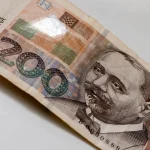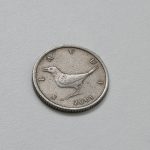As Poslovni Dnevnik writes, the European Commission (EC), the executive body of the European Union (EU), will mark the fifteenth anniversary of the establishment of its popular Regiostars award on Thursday in the Portuguese city of Evora. The Regiostars award works to promote projects co-financed by EU funds.
At the ceremony, the European commissioner, Portuguese Elisa Ferreira, will present a special award to one of the projects that has already been awarded since the establishment of “Regiostars” back in 2008. Among the fifteen candidates, who could be publicly voted for until Tuesday on the Regiostars website, is the Croatian project, e-school.
With it, 151 primary and secondary schools across the country received IT equipment and digital teaching aids, which accounted for 10 percent of all schools across the Republic of Croatia. The initiator of this pilot project is CARNET, a public institution that operates in the field of information and communication technology in this country.
Back in pandemic-dominated 2020, this Croatian project received the “Regiostars” award in the Belgian capital of Brussels, based on votes collected over the internet. Previously, CARNET had applied for that tender. With its cohesion policy, the European Commission tries to reduce inequalities between different parts of the EU, so through funds filled with taxpayers’ money from 27 member states, it co-finances projects in the maximum amount of 85 percent. The rest is provided by the member states in which the projects themselves take place.
In the elementary school in Velika Ludina, which is around 30 kilometres from Sisak, students solve math problems on tablets and the smart board in the classroom gives the correct answers by itself.
“Just a decade ago, things looked completely different. If the professor wanted to visualise something, he had to be good with chalk and a blackboard, and the students learned exclusively from books,” said Croatian journalist Boris Abramovic, the author of a five-minute film about the Croatian project that will be presented in Evora.
“In just seven years, the classic classroom has turned into something that the previous generation only saw in science fiction movies,” adds Abramovic about that school in the north of Croatia. Damir Belavic, the professor of mathematics in the school in question in Velika Ludina, says that he himself has an “online notebook”.
“Students have online notebooks, so even those who aren’t at school can follow what is being done. On top of that, everything remains stored in these notebooks, so it’s easy for me to distribute materials to students. I direct them to various links and we do various online exercises,” he explained.
Classic paper notebooks, however, are still used. Juraj Bilic, the deputy director of CARNET, says that this Croatian project proved to be successful, but that it is not finished yet and more plans are in the works.
For more, make sure to check out our dedicated news section.











